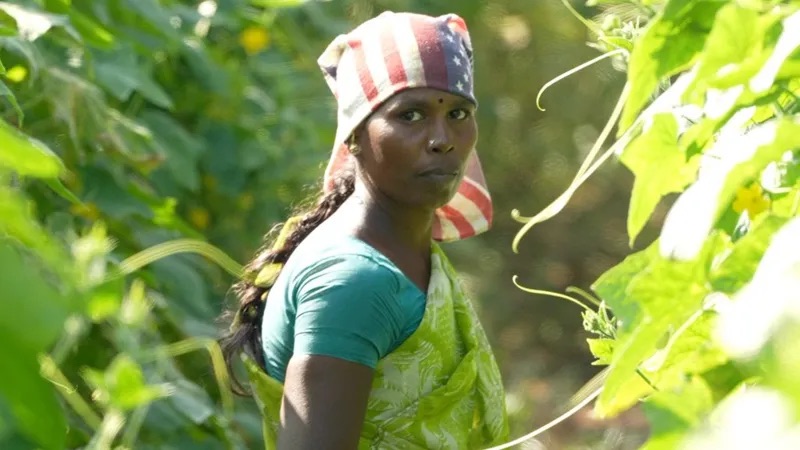- By Tulip Mazumdar,Global health correspondent
Working in extreme heat can double the risk of stillbirth and miscarriage for pregnant women, according to new research from India.
The study found that the risks to mothers-to-be are significantly higher than previously thought.
Researchers say hotter summers can affect not only women in tropical climates, but also in countries such as the UK.
They want specific health advice for working pregnant women globally.
Eight hundred pregnant women in the southern Indian state of Tamil Nadu took part in the study, which was started in 2017 by the Sri Ramachandra Institute of Higher Education and Research (SRIHER) in Chennai.B
About half of those who took part worked in jobs where they were exposed to high levels of heat, such as agriculture, brick kilns and salt flats. The others worked in cooler environments, such as schools and hospitals, although some workers were also exposed to very high levels of heat in those jobs too.
There is no universal threshold for what level of heat is considered to be too hot for the human body.
“[The impact of heat] is relative to what you’re used to and what your body’s used to,” says Prof Jane Hirst, Working in extreme high temperatures in
India can double pregnancy risks Rate of adverse outcomes for women in the study one of the scientists who contributed to the study exposed to high temperature lł.
In the lush green fields of Tiruvannamalai, I meet Sumathy, one of the pregnant women who took part.
She removes her thick gloves and stretches out her fingers. She has been picking cucumbers for the past two hours.
“My hands burn in this heat,” she tells me, gently caressing her fingertips.
Summer hasn’t even started yet, but already it is about 30 degrees here today and feeling hotter with the humidity.
Sumathy has to protect her hands from the constant stabbing of the tiny spikes on the cucumbers, but the gloves make her sweat profusely.
“My face burns too,” she says. She comes to the cucumber farm before and after her main job, working as a cook in a school, and is paid about 200 rupees or just under £2 for her efforts.
Sumathy was one of the first recruits.
Her baby was also one of the first in the study to die.
“I used to feel so exhausted being pregnant and working in the heat,” she says.
One day, as Sumathy was dropping off her husband’s lunch, she suddenly started feeling very unwell. That evening, she went to see a doctor who told her she had suffered a miscarriage 12 weeks into her pregnancy.
“My husband would lay me down on his lap and console me. I don’t know what I would have done without him,” she says.
Sumathy talks about her husband with so much love but has had to learn to live without him. He recently died, and she is now the main breadwinner for the family.
Sumathy will never know for sure if working in the heat during her pregnancy had anything to do with her losing her first child.
But overall, the study found that women who worked in similar conditions as her were twice as likely to suffer a stillbirth or miscarriage than those working in cooler environments.
Important for women all over the world
The pregnant women in the study in India really are “at the forefront of experiencing climate change,” says Prof Hirst, who is a UK-based consultant obstetrician, and Professor of Global Women’s Health at medical research organisation The George Institute.
Earth’s average temperature is projected to rise by nearly three degrees by the end of the century, compared with pre-industrial times, and the World Health Organization (WHO) is warning of “an existential threat to all of us” with pregnant women facing “some of the gravest consequences”.


